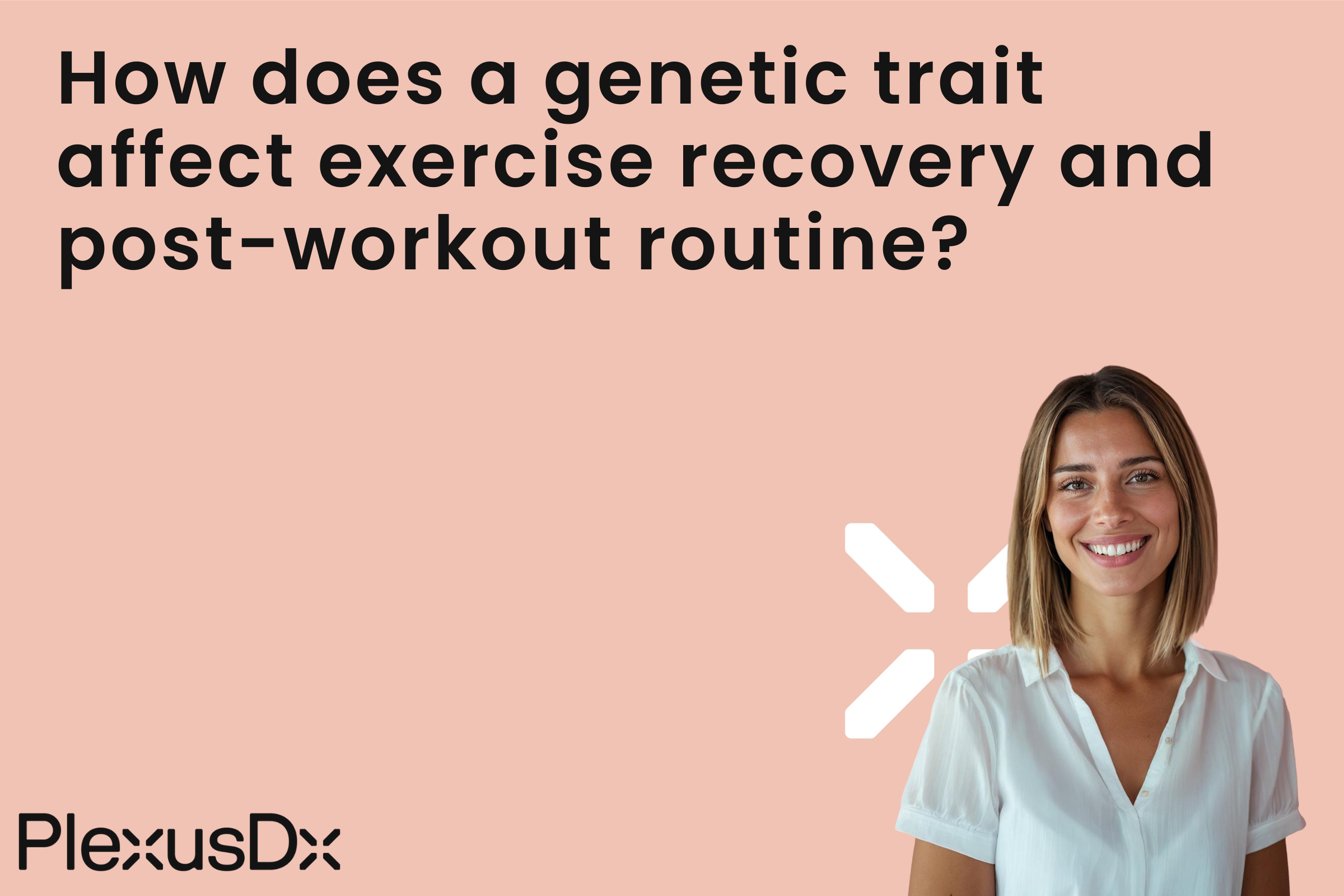Exercise Recovery
Ever noticed how some people recover rapidly from intense workouts while others deal with prolonged soreness and tiredness? The answer may lie in our genes. Our blog post investigates how genetics impacts exercise recovery and explains how our genetic composition affects post-workout activities.
Physical activity plays an essential role in maintaining health yet it causes bodily stress. After intensive physical activity our bodies experience fatigue and muscle soreness because they need to repair and rebuild tissues. Recovery rates after exercise differ between individuals because genetics significantly determines how effectively our bodies heal from physical activity.
Genetic Trait
Our bodies' ability to recover from physical activities is determined by a genetic trait that governs recovery efficiency. Exercise recovery is an essential trait that keeps workouts effective while allowing safe and efficient exercise throughout time. By learning about our genetic predispositions for exercise recovery we can adjust our post-workout routines to maximize recovery and improve performance.
Though genetic impact on exercise recovery presents an interesting idea we need to scrutinize this topic carefully. Research continues to explore the connection between specific genes and exercise recovery but definitive conclusions require additional studies. Early research indicates that specific genetic components might influence bodily responses to exercise stress and recovery processes. The genes connected to exercise recovery can affect multiple physiological systems such as nerve development and heart function as well as muscle performance and blood sugar regulation. Genetic differences impact how we experience muscle soreness and fatigue and respond to inflammation following exercise which then defines our total recovery experience.
The genetic model of exercise recovery remains in initial development stages yet people can implement practical measures to support recovery after workouts regardless of their genetic makeup. Post-exercise recovery can be enhanced through stretching routines and massage therapy combined with cold or heat treatments and by increasing protein consumption and maintaining proper hydration to reduce muscle soreness. Research demonstrates that massage therapy effectively prevents muscle soreness and reduces inflammation after physical exercise. Applying cold packs or heat therapy to sore muscles assists in pain and swelling reduction which helps speed up recovery. Proper nutrition plays a vital role where adequate protein and carbohydrate intake supports the repair of muscles and energy store replenishment.
Genetic testing remains inconclusive for exercise recovery yet people can enhance their exercise performance by following a comprehensive post-workout recovery method including physical therapies together with nutrition and hydration. The study of genetics and exercise recovery represents a complicated yet burgeoning field that reveals interesting findings about bodily responses to physical activity. Emerging scientific research indicates direct genetic influences on exercise recovery while demonstrating that genetic factors shape our post-workout experiences. Explore the relationship between genetics and exercise recovery by adding evidence-based recovery methods like massage therapy, cold and heat treatments, and proper nutrition to your post-workout routine for better performance results.
Actively managing your post-exercise recovery process leads to better fitness results and helps you meet your wellness objectives. Explore the Precision Health & Wellness tests from PlexusDx now at PlexusDx.com along with Amazon and Walmart to reveal key genetic factors influencing your exercise recovery. Use bespoke health data to reach your highest potential while refining your fitness path. When it comes to exercise recovery your genetic makeup represents only a fraction of the complete picture. You can empower your health decisions through the integration of genetic information with practical lifestyle approaches. Discover your genetic potential to improve exercise recovery and performance through understanding your unique genetic blueprint. Understanding your genetic profile can help you realize your maximum fitness capabilities start your exploration now!

Share:
Which HLA-DQA2 gene variants raise alopecia areata risk?
How does ADA variant affect attention span, lifespan? How can PlexusDx testing help?